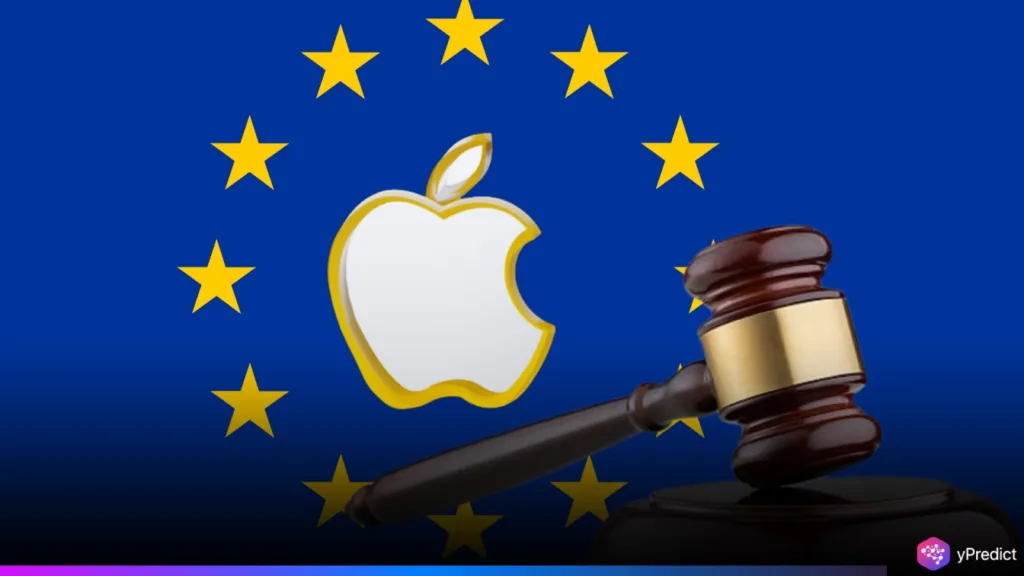
Apple has initiated major changes to its App Store operations in the European Union, marking a significant shift in response to the region’s strict Digital Markets Act (DMA). The tech giant now allows third-party app stores, alternative payment methods, and non-WebKit browsers on iOS devices across EU member states. These changes are part of Apple’s efforts to comply with regulatory requirements aimed at curbing anti-competitive practices among designated “gatekeeper” platforms.
Apple’s Policy Changes Mark a New Era for iOS in Europe
According to Bloomberg, Apple Inc. is once again under intense scrutiny from European Union antitrust regulators, who are weighing a new set of charges if the company fails to comply with recently enacted digital competition laws. The European Commission is expected to issue a formal ultimatum by June 26, demanding that Apple permit app developers to inform users about alternative, potentially cheaper purchasing options outside of the App Store.
This warning comes after Apple received a €500 million fine earlier this year for violating the EU’s Digital Markets Act. If Apple continues to ignore the DMA’s requirements, it could face additional penalties for every day of continued non-compliance. Fines may reach up to 5% of the company’s average global daily turnover for each day of violation.
The European Union’s enforcement actions against Apple align with similar penalties imposed on other major global technology companies this year. On April 23, the same day Apple was fined, Meta Platforms Inc. received a €200 million penalty from EU regulators. The fine addressed Meta’s “pay or consent” model, reinforcing the EU’s aggressive enforcement of the Digital Markets Act.
Apple’s Response to the Regulation
Apple pushed back strongly, expressing deep frustration with the European Union’s increasingly aggressive regulatory approach toward tech companies. A company spokesperson criticized the European Commission for constantly changing compliance standards, creating confusion and regulatory instability. They argued these shifting expectations make consistent alignment nearly impossible, despite the firm’s ongoing efforts to comply. Apple said it has spent hundreds of thousands of hours meeting demands, only to face continually moving goalposts.
The European Commission has stood firm and reiterated its stance despite growing tension with Apple over regulatory compliance. A spokesperson said Apple still has time to resolve the issues and meet the Digital Markets Act’s strict requirements. They emphasized that the Commission holds wide enforcement powers to ensure full compliance if Apple continues violating the regulation.
Regulatory Backdrop: Pressure from Brussels
Apple has a history of clashes with EU regulators, including major fines and high-profile investigations into its business practices. Last year, the EU fined Apple €1.8 billion for allegedly restricting music-streaming rivals from operating freely on its platform. The Commission also ordered Apple to repay €13 billion in taxes to Ireland in a major state aid case.
Meanwhile, Brussels has fined Alphabet Inc.’s Google over $8 billion and forced structural changes on several major U.S. tech companies. Amazon was required to change how its online marketplace operates to meet the European Union’s competition rules. Apple had to adjust the functionality of its NFC tap-to-pay chip. Microsoft’s Teams platform remains under a separate antitrust investigation.
To comply with the DMA, Apple introduced major changes on March 7, allowing EU users to access third-party app stores, use alternative browsers, and enable banks and retailers to offer their in-app payment systems.
Conclusion
These reforms signal a major shift in how Apple operates its digital storefront, tightly controlled since the App Store’s 2008 launch. They show how global regulatory frameworks are increasingly shaping user experiences and influencing corporate platform policies worldwide. For example, Chinese rules force Apple to remove apps like VPNs, while EU regulations demand openness and consumer choice.
As global regulators intensify oversight of Big Tech, Apple’s experience in Europe signals a broader challenge: navigating diverging digital laws while maintaining control over its ecosystem, an issue that is reshaping how technology companies operate across jurisdictions.







